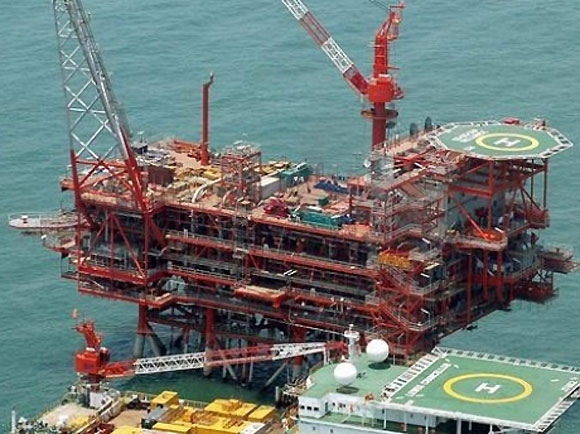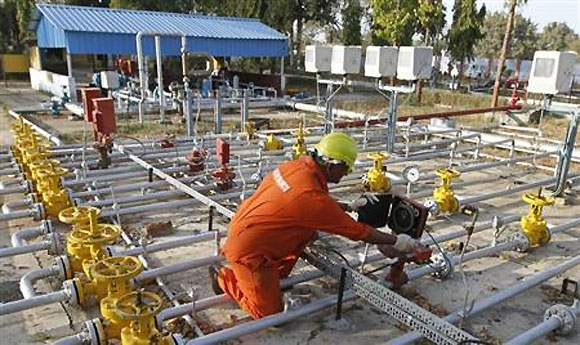
Oil and Natural Gas Corporation is the government’s milking cow.
It always has been and might continue to be for some more time. The government pays ONGC, the largest oil and gas exploration and production company in India, only around $50 per barrel of oil, which is nearly half the price at which oil trades in the international market.
And these are wellhead prices and not landed prices as is the logic used to determine gas price.
Despite this step-motherly treatment, ONGC has kept on producing oil and gas without any excuses since it is a public sector company.
Even at these low prices, the company generates good amount of cash every year and pays the government a handsome dividend in lieu of its shareholding.
Consider the following figures: ONGC posted net sales (net of excise) of Rs 82,552 crore (Rs 825.52 billion) in FY13 from its Indian operations.
Of this, the government asked the company to bear an amount of Rs 49,421 crore (Rs 494.21 billion) as its share of subsidy, around 60 per cent of the turnover.
Over and above this, the company paid a dividend of Rs 8,128 crore (Rs 81.28 billion) and Rs 1,319 crore (Rs 13.19 billion) as dividend tax.
Click on NEXT for more...

Apart from the corporate taxes, cess and royalty that an exploration company has to pay, ONGC as a good corporate citizen spent Rs 263 crore (Rs 2.63 billion) towards Corporate Social Responsibility (CSR) activities — the work that was supposed to be done by the government in the first place.
As if this was not enough, government raised money by selling a portion of its holding under its divestment programme.
In 2012, the government raised nearly Rs 12,000 crore (Rs 120 billion) through this method.
The government now wants more from the company. At the time of announcing the gas price hike, the government said ONGC would be the biggest beneficiary.
However, it now wants the company to bear a part of the fertiliser and power subsidy that will arise from the subsequent rise in input cost to these sectors.
Only the two public limited companies – ONGC and OIL have been given the honour of bearing the burden. Private sector players can keep on reaping profits.
Click on NEXT for more...

Had ONGC have been an unlisted company, the government would have done whatever it wanted with the company.
But ONGC is a listed company, and the government's holding is only 69 per cent.
If any other private company’s promoter had openly asked his listed company to bear the cost of his extravagance, there would have been a huge outcry from all quarters, leave alone the shareholders.
But in the case of ONGC, no one is protesting. Not even the shareholders nor its board.
Why should one invest in a company, whose promoters are free to take out money for their own selfish interests.
Even though one might feel proud of the achievements of ONGC, the reality is that the management is now toothless and has no control over its huge cash pile.
Investing and emotions do not go together. In the fight for attracting investor money, ONGC is clearly the loser and the milkman has ensured that it would remain the loser in the medium term.